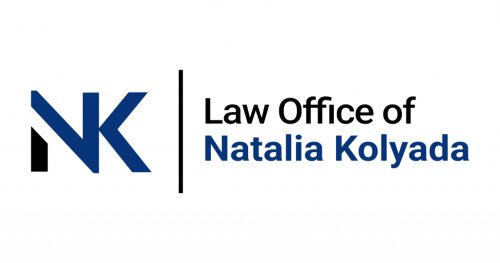Best Child Custody Lawyers in Georgia
Share your needs with us, get contacted by law firms.
Free. Takes 2 min.
Free Guide to Hiring a Family Lawyer
Or refine your search by selecting a city:
List of the best lawyers in Georgia, United States
About Child Custody Law in Georgia, United States
Child custody law in Georgia governs how parents or guardians make decisions and care arrangements for their children after a separation or divorce. The main focus of Georgia’s custody law is the best interests of the child, emphasizing stability, safety, and continuing relationships with both parents when possible. There are two types of custody: legal custody, which covers decision-making authority for the child's welfare, education, and health, and physical custody, which determines with whom the child will live. Custody can be shared (joint) or awarded to one parent (sole), depending on what the court deems best for the child.
Why You May Need a Lawyer
Child custody issues are often emotionally charged and complicated. You may benefit from the advice and representation of a family law attorney if:
- You are going through a divorce or legal separation and need to establish a parenting plan.
- You disagree with your co-parent on custody arrangements.
- Your child’s other parent intends to relocate or has relocated with your child.
- You have concerns about your child’s safety with the other parent.
- There are allegations of abuse, neglect, or substance misuse involving either parent.
- You wish to modify an existing custody order due to new circumstances.
- The other parent is not following a court-ordered custody or visitation schedule.
- There are complex factors, such as a parent’s criminal record or interstate custody issues.
A lawyer can help explain your rights, represent your interests in court, file paperwork correctly, and guide you through the often complicated legal process.
Local Laws Overview
Georgia law prioritizes the best interests of the child when making custody decisions. Here are some important points about child custody law in Georgia:
- Types of Custody: Georgia courts may order joint or sole legal custody and joint or sole physical custody. Most courts encourage joint legal custody unless circumstances suggest otherwise.
- Best Interests of the Child: A judge considers factors such as each parent's home environment, the emotional ties between parent and child, each parent's ability to care for the child, history of substance abuse or violence, and the child’s own wishes (especially children aged 14 or older).
- Parenting Plans: Georgia requires parents to submit a detailed parenting plan that sets out physical custody schedules, decision-making responsibilities, dispute resolution methods, and how the parents will communicate about the child.
- Modification of Custody: Custody orders may be modified if there is a significant change in circumstances that affects the child’s welfare.
- Enforcement: If a parent fails to comply with a custody order, the court may enforce its terms through legal actions such as contempt of court.
- Guardian ad Litem: In cases involving contested or complex custody disputes, the court may appoint a guardian ad litem to represent the child’s interests.
Frequently Asked Questions
What is the difference between legal and physical custody in Georgia?
Legal custody is the authority to make decisions about the child's upbringing (education, health care, religion). Physical custody refers to where the child lives. Both types can be joint or sole.
How do courts decide who gets custody in Georgia?
The main factor is the best interests of the child, which involves many considerations, including each parent’s ability to provide, stability, emotional ties, and the child's wishes if the child is 14 or older.
Can a child choose which parent to live with?
Children 14 or older can choose which parent to live with, but the judge can override the choice if it is not in the child’s best interest. The court may consider the preferences of children 11 to 13 but is not bound by them.
Do mothers always get custody in Georgia?
No, there is no automatic preference for mothers. Both mothers and fathers are treated equally under the law.
Can custody orders be changed?
Yes, either parent can request a custody modification if there is a substantial change in circumstances affecting the child’s welfare.
What if one parent wants to move away with the child?
The relocating parent must inform the other parent, who can object in court. The judge will decide based on the child’s best interests.
What is a parenting plan?
A parenting plan is a required document in Georgia that details physical custody arrangements, how parents will make decisions for the child, and how disputes will be handled.
Do I need a lawyer for a child custody case?
It is not required, but having a lawyer can help you understand your rights, file paperwork properly, and represent your interests, especially in disputed cases or complicated circumstances.
How is child visitation handled in Georgia?
Noncustodial parents are typically granted visitation rights unless it would endanger the child. The specifics are included in court orders or the parenting plan.
What happens if the other parent violates the custody order?
You can ask the court to enforce the order. Violations may lead to legal consequences, including contempt of court charges for the noncompliant parent.
Additional Resources
- Georgia Legal Aid - Offers legal information and resources for family law matters.
- Georgia Superior Court Clerks - For court locations, forms, and filing instructions.
- Georgia Department of Human Services Division of Child Support Services - For child support help.
- State Bar of Georgia Lawyer Referral - To find an attorney specializing in child custody cases.
- Local family law self-help centers or pro bono legal services.
Next Steps
If you are facing a child custody issue in Georgia, consider taking the following steps:
- Gather all documents related to your case, such as divorce filings, prior custody orders, and any evidence relevant to your child’s well-being.
- Write down your questions and concerns about custody arrangements and your desired outcome.
- Consult with a Georgia family law attorney to discuss your situation and legal options.
- Be prepared to participate in mediation or court hearings if necessary.
- Use reputable resources listed above for information and support as you navigate the process.
Every custody case is unique, and seeking professional legal guidance is the best way to protect your and your child’s interests.
Lawzana helps you find the best lawyers and law firms in Georgia through a curated and pre-screened list of qualified legal professionals. Our platform offers rankings and detailed profiles of attorneys and law firms, allowing you to compare based on practice areas, including Child Custody, experience, and client feedback.
Each profile includes a description of the firm's areas of practice, client reviews, team members and partners, year of establishment, spoken languages, office locations, contact information, social media presence, and any published articles or resources. Most firms on our platform speak English and are experienced in both local and international legal matters.
Get a quote from top-rated law firms in Georgia, United States — quickly, securely, and without unnecessary hassle.
Disclaimer:
The information provided on this page is for general informational purposes only and does not constitute legal advice. While we strive to ensure the accuracy and relevance of the content, legal information may change over time, and interpretations of the law can vary. You should always consult with a qualified legal professional for advice specific to your situation.
We disclaim all liability for actions taken or not taken based on the content of this page. If you believe any information is incorrect or outdated, please contact us, and we will review and update it where appropriate.
Browse child custody law firms by city in Georgia
Refine your search by selecting a city.














